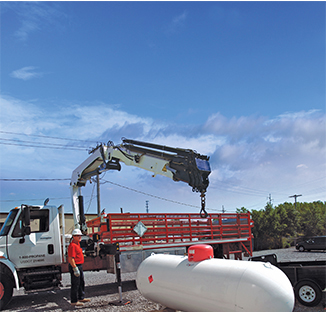Congressional committee requests review of OSHA’s crane rule
House Small Business Committee Chairman Steve Chabot, R-Ohio, and subcommittee Chairmen Rod Blum, R-Iowa, and Trent Kelly, R-Miss., sent a letter to the U.S. Department of Labor and Occupational Safety and Health Administration (OSHA), requesting a thorough review and analysis of OSHA’s cranes and derricks in construction regulation and its impact on small businesses, as required by the Regulatory Flexibility Act.
The letter notes the Small Business Committee’s concerns regarding the burdens the regulation could impose on small agricultural and propane businesses, including the impact to customers, reports the National Propane Gas Association (NPGA).
“Congress recognized that by treating all regulated businesses, organizations and governmental jurisdictions as equivalent in the regulatory process, small entities were being disproportionately impacted by federal regulations and a one-size-fits-all approach was not always the best solution,” the letter says.
The letter comes following the House Small Business Subcommittee on Agriculture, Energy and Trade hearing, where witnesses attested to considerable impact of the regulation and discussed the bureaucracy attributed to routine construction industry standards, NPGA says.
In addition to this letter, more than 1,000 letters were submitted to OSHA between May 25 and July 5. Nearly 90 percent of those letters supported the propane industry’s position that OSHA should exclude the propane industry from the regulation, NPGA adds.
“We thank the Small Business Committee for requesting the review and analysis, which we believe will clearly show OSHA that the use of a crane by propane field technicians to deliver or retrieve propane containers is not an activity within the scope of the cranes and derricks in construction regulation,” says Rick Roldan, NPGA president and CEO. “Past errors by the agency must be corrected in the final rule, and should it be necessary, OSHA should delay the current Nov. 10, 2018, compliance deadline to afford the agency appropriate time to review and rectify these issues.”

















